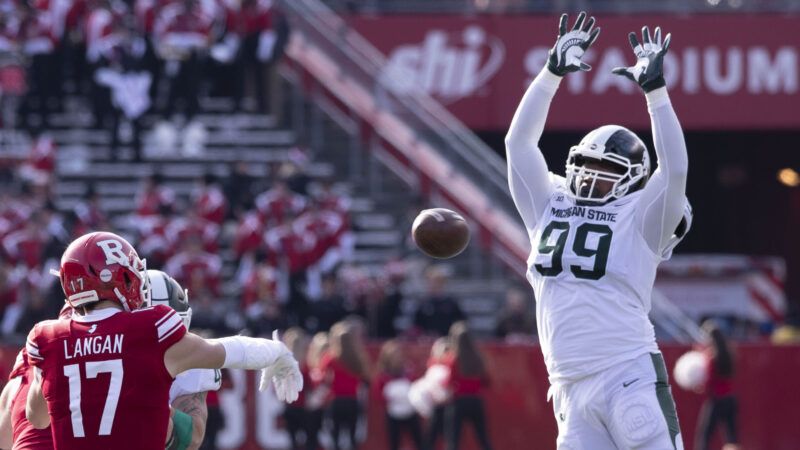Voters Don't Want To Pay for Your Dumb Stadium
In Albuquerque, Augusta, and Denver, plans to borrow and spend on stadiums got soundly defeated on Election Day.

Voters in Denver, Colorado, approved ballot measures on Tuesday authorizing the city government to issue bonds to spruce up parks, renovate homeless shelters, and upgrade public transit.
They rejected just one portion of Mayor Michael Hancock's five-part, $450 million bond proposal: the one that would have directed $190 million of that borrowing toward the construction of a new multi-use stadium near the city's hip River North neighborhood. While the first four parts of Hancock's proposal won support from at least 60 percent of voters, 58 percent rejected the stadium subsidy, according to The Denver Post's election tracker.
The stadium project was the most contentious of the bond issues. Hancock trotted out the usual claims, arguing that the new stadium (and upgrades to the neighboring National Western Center, a rodeo complex) would "create year-round jobs and provide funding for community programs and projects important for the well-being of surrounding communities." But the election results would suggest that the residents of the city disagree. If it had been approved, the stadium project would have soaked up 35 percent of the funding in the mayor's proposal, and many people felt "the money would be better spent elsewhere," Colorado Politics reports.
Indeed, there are few more effective ways to waste $190 million than by throwing it into stadium projects, which almost always underperform the lofty promises made about how they will generate jobs, tax revenue, and business opportunities. And when given the opportunity to block those projects, voters seem less likely to be duped these days.
Denver's proposed new stadium was one of three similar projects to get a resounding thumbs-down from the public during this week's elections. In Albuquerque, New Mexico, a proposal that would have spent $50 million in public money on a $70 million stadium for the city's minor league soccer team was rejected by 65 percent of voters. That happened despite Mayor Tim Keller—a vocal proponent of the project—winning reelection and despite voters approving all the other bond measures on the ballot, Field of Schemes blogger Neil deMause notes.
"The people of Albuquerque also made it clear they want public resources used on other community and social priorities," Stop the Stadium, a group that led opposition to the Albuquerque project, said in a statement.
Meanwhile, 65 percent of voters in Augusta, Georgia, rejected a similar bond issue that would have seen the city take on debt to fund the construction of a $235 million stadium for a yet-to-be-determined future occupant (possibly a minor league hockey team). The cost of the new stadium was projected to add about $100 to the average property tax bill in the city—all to create "a handful of new permanent jobs," according to The Augusta Chronicle. Who wouldn't vote for that?
But voters in Augusta might not have the final say on whether their wallets get raided for the project. Brad Usry, vice chairman of the county authority that would run the new stadium, told the Chronicle last month that a "no" vote would "only delay the project so the authority can find other means of funding it."
So voters were asked to give their approval for the stadium project, but rejecting it apparently doesn't count? Cool democracy you have there, Augusta.
For the proponents of stadium boondoggles, however, Tuesday's results are probably just one more reason to prefer backroom deals—like the super swampy agreement that brought the newly crowned World Series champion Atlanta Braves to their home in Cobb County, Georgia—over an open, democratic process. And that's why more cities should embrace an idea pioneered in Boise, Idaho, two years ago and mandate that stadium projects get a public referendum.
If stadiums really were the cash cows that cities promise they are, there would be ample private funding for them. After all, cities don't need to use public funds to build commercial properties like warehouses and office buildings—because those projects can be reliably trusted to turn a profit.
Tuesday's results demonstrate once again that taxpayers are generally unwilling to hand over their money (or be on the hook for borrowed funds) to finance the sportsball dreams of politicians and team executives.


Show Comments (75)